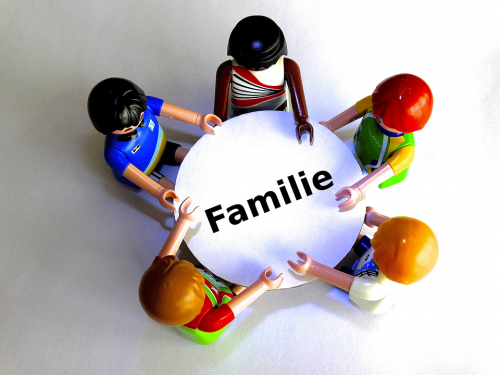
Source: pixabay.com
Having a kid with bipolar disorder is very stressful and affects not only us parents, but our family and friends as well. It is quite tough to control the disabling effects of this disorder. Additionally, having your bipolar child take his medications is one of the most challenging aspects of being a parent of bipolar kids.
Dr. Kimberly Delaney, Psyd, Pmhnp said “Bipolar disorder, also known as manic-depressive illness, is a brain disorder that causes unusual shifts in mood, energy, activity levels, and the ability to carry out day-to-day tasks.”
Bipolar patients, especially kids and teens, have a high likelihood of medication nonadherence. In fact, a study shows that only 30% of this group of patients take their medications on a regularly scheduled basis. Relapse occurs after abrupt discontinuation of drugs.
Reasons for discontinuation of taking their medications include medication side effects, social stigma, and belief that they are already cured and will not have another episode.
Medications Are Not Enough
According to some therapists and as studies show, medicines are not enough in addressing the symptoms of bipolar disorder. But there are some pieces of evidence which reveal that non-medicine therapeutic interventions could enhance a patient’s outcome. Some parents try to make the most of these interventions in order to help their children and to keep the family together as they deal with the illness.
“Mindfulness meditation practices are effective interventions, and sometimes for mild to moderate conditions—depression and anxiety—super-effective as front lines,” said Saundra Jain, MA, PsyD, LPC.

Source: pexels.com
Family-Focused Therapy
There are many therapeutic interventions in treating a bipolar disorder such as
- Cognitive-behavioral therapy
- Psychoeducation
- Interpersonal and social rhythm therapy
- Family intervention
- Cognitive remediation and function remediation
- Mindfulness-based interventions
One that is proven successful for bipolar patients is family-focused therapy or FFT. This therapy helps them to be more stable and lessen the possibility of relapse.

Source: flickr.com
How It Works
In this kind of therapy, the therapist educates each family member about bipolar disorder and all related problems linked to it, like family members and caregivers getting burned out when dealing with the family member with bipolar disorder.
This method hopes to
- Build better communication skills that will help families minimize the stress this illness causes them, so they can work together in solving the issues related to family relationships, not on the bipolar alone.
- Teach them to identify the symptoms and recognize signs of any awaiting episodes and relapses.
- Allow them to engage more efficiently in resolving conflicts with minimal undesirable feelings.
- Teach them how to use problem-solving skills and management approaches mainly designed to assist members with bipolar disorder.
- Introduce to the families some constructive steps they can take when the patient is having difficulties with the disease.
Success Of Family Therapy In Keeping Family Together
A study from randomized controlled trials have shown that FFT is useful in helping the patients avoid relapses. This method of therapy helps the patient and even the family members recover from bipolar episodes much faster than without the intervention, making it far more effective than other types of psychotherapy.

Source: pixabay.com
I can say that this family-focused therapy saved our family relationships from falling apart. Taking extra care of kids with bipolar disorder, addressing their particular needs, and why we are giving them more attention is hard to explain to their siblings who don’t have the disease. There are many family stressors caused by having a bipolar child. Even attending parties and gatherings have to be considered. I don’t want to deprive my other kids the chance to socialize and be with their friends. FFT allowed us to come up with a solution to this situation. It had taught us techniques on how all our kids can enjoy the party and what to do when we sense that our kids with bipolar illness are about to have an episode.
I know that as my kids with bipolar mature, the problems that come with it will also add up. The mood swings might get worse especially as they reach puberty, their attitude might change, and they may be influenced by their peers. Sadness and other symptoms might also get worse as I know that there are limitations to all these therapies and medications that they are receiving. But with continuous treatment, I’m hopeful that we can survive the challenges brought by bipolar disorder – as a family.
“Bipolar I includes very clear manic episodes that are hard to miss, whereas bipolar II doesn’t necessarily have that,” says Sally Winston, PsyD.





